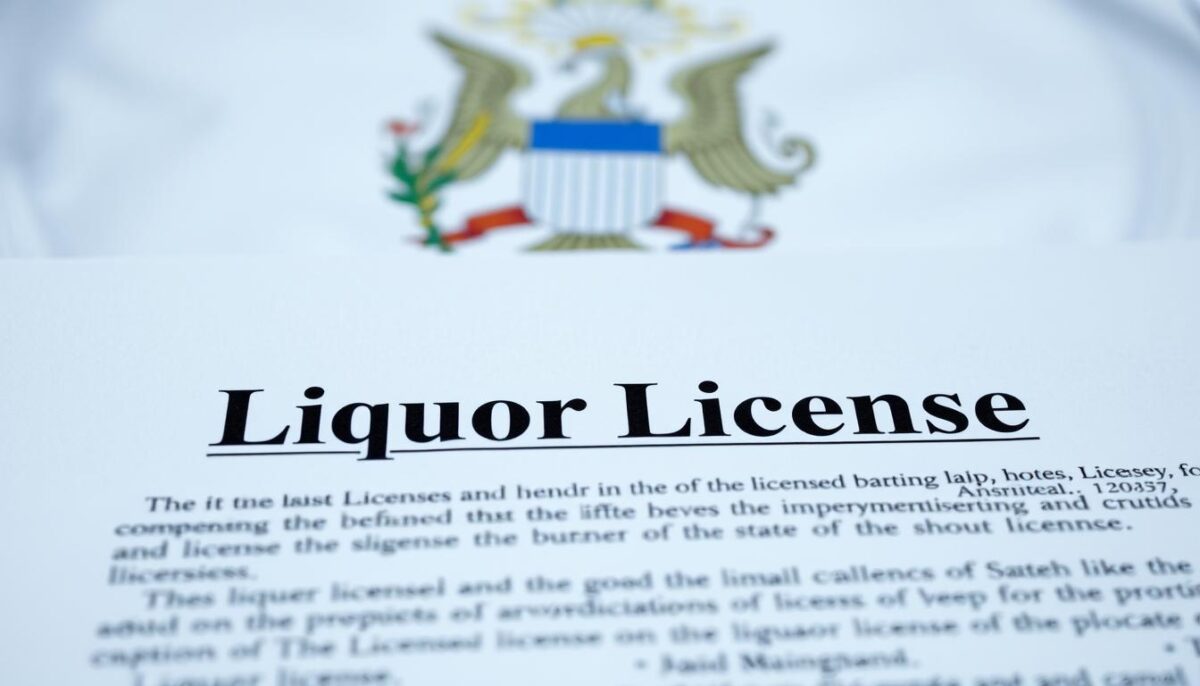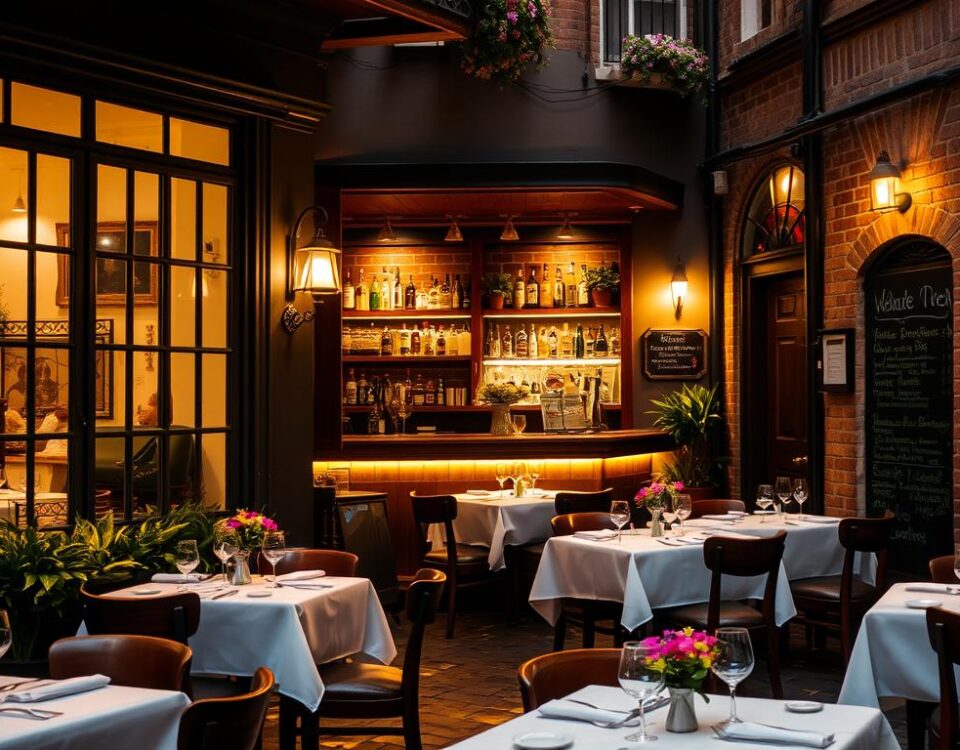
Restaurant Health Inspection Checklist: Pass in 60 Minutes
August 31, 2025
Top Places to Score Deals on Restaurant Kitchen Equipment
September 1, 2025As a new business owner, waiting for your liquor license can be a frustrating experience. You’ve invested in a great location, hired staff, and are ready to open your doors, but without the necessary permit, you’re unable to serve alcoholic beverages. According to industry data, liquor license applications can take months longer than expected, with some businesses waiting up to a year for approval.
The licensing process involves multiple agencies, extensive documentation, and various compliance requirements, creating significant delays. Understanding the causes of these delays is the first step toward finding effective solutions. With proper planning and the right approach, most delays can be minimized or avoided altogether.
Key Takeaways
- Understand the comprehensive nature of the liquor licensing process.
- Identify the factors contributing to delays in your license application.
- Learn how to minimize delays with proper planning and the right approach.
- Discover the financial impact of delayed liquor license applications.
- Explore practical strategies to navigate the complex licensing process efficiently.
Understanding Common Causes of Liquor License Delays
Delays in obtaining a liquor license can be frustrating, but understanding the common causes can help you navigate the process more effectively. When applying for a liquor license, it’s crucial to be aware of the potential pitfalls that can slow down your application.
Bureaucratic Backlogs and Processing Times
One of the primary reasons for liquor license delays is bureaucratic backlogs and lengthy processing times. Government agencies responsible for issuing licenses often have a high volume of applications, leading to delays. As I experienced, even a simple application can get stuck in the system for months.
“The processing time for liquor licenses can be extensive, and it’s essential to plan accordingly.”
Location-Related Issues That Cause Delays
Location-related issues are another common cause of delays. Zoning restrictions, proximity to schools or churches, and other location-specific factors can impact your application. For instance, if your business is located in a residential area, you may need to obtain special permits or face opposition from local residents.
Ownership and Background Check Problems
Ownership and background check issues can also cause significant delays. The city will only issue liquor licenses to people who meet eligibility requirements. Background checks are conducted for any person with 5% or more ownership, corporate officers, site managers, and persons loaning or giving 10% or more interest in the company. Even a person who owes any outstanding debt to the City of Chicago, such as traffic tickets, can delay an application.
- Complex investment arrangements and silent partners can trigger additional scrutiny, leading to delays.
- Past violations or legal issues for any owner can affect the entire application, even if they’re only a minority stakeholder.
- Financial obligations to government entities, including unpaid taxes or tickets, can halt the application process until resolved.
To avoid these issues, it’s crucial to vet potential business partners and investors before including them in your application.
Pre-Application Planning: Preventing Delays Before They Happen
Strategic planning before submitting a liquor license application can make all the difference in avoiding delays. A proactive approach allows you to address potential issues before they become major problems.
Researching Local Liquor Laws and Zoning Requirements
Understanding local liquor laws and zoning requirements is the first step in pre-application planning. This involves researching the specific regulations in your area, including any restrictions on the type of business you can operate and where it can be located. Local ordinances can significantly impact your ability to obtain a liquor license, so it’s crucial to familiarize yourself with these laws early on.
- Review local zoning maps to ensure your business location is zoned for liquor sales.
- Familiarize yourself with local liquor laws, including any quotas or restrictions on license issuance.
Timing Your Lease Agreements and Business Investments
Timing is everything when it comes to lease agreements and business investments. Securing a lease or making significant investments before your liquor license is approved can be risky. If your application is denied, you could be left with significant financial losses. It’s essential to time these decisions carefully, considering the status of your license application.
- Consider conditional lease agreements that are contingent on liquor license approval.
- Delay major investments until your liquor license is approved to minimize risk.
Vetting Business Partners and Investors Early
Finding out late in the game that one of your partners or investors will delay your application can send you scrambling to reorganize your business. Applicants should vet all participants as early as possible to avoid such a result. This includes conducting thorough background checks and assessing their financial history to ensure they meet the eligibility requirements for liquor license ownership.

- Conduct thorough background checks on potential business partners and investors.
- Assess their financial history to ensure they are eligible for liquor license ownership.
By taking these steps, you can significantly reduce the risk of delays in the liquor license application process. Pre-application planning is not just about avoiding problems; it’s about setting your business up for success.
Navigating the Liquor License Application Process
Navigating the liquor license application process requires careful planning and attention to detail to avoid delays. A successful application is crucial for businesses that rely on serving alcohol, and understanding the process can make a significant difference.
Required Documentation and Common Application Mistakes
One of the critical steps in the liquor license application process is gathering the required documentation. Common mistakes include incomplete or inaccurate submissions, which can lead to significant delays. Ensuring that all documents are in order and meet the requirements is vital for a smooth approval process.
To avoid mistakes, it’s essential to thoroughly review the application checklist and understand the specific requirements for your business and location.
Working With Multiple Regulatory Agencies
The liquor license application process often involves working with multiple regulatory agencies, each with its own set of rules and requirements. Coordinating with these agencies can be challenging, but it’s crucial for securing approval. Understanding the role of each agency and their specific needs can help streamline the process.
Inspection Preparation and Compliance
A key aspect of the liquor license application process is preparing for inspections. A failed inspection by any city department can put a hold on the license approval process until all outstanding issues are resolved. To avoid this, it’s essential to ensure your site meets all requirements before the official inspection.
By understanding the common compliance issues that trigger failed inspections and taking proactive steps to address them, you can ensure a successful inspection and move closer to obtaining your liquor license.
Practical Liquor License Delay Fix Strategies
When faced with liquor license delays, it’s essential to have a strategic plan in place to mitigate the impact on your business. Delays can stem from various factors, including bureaucratic backlogs, location-related issues, and problems with ownership or background checks.
Temporary License Options While Waiting for Approval
One potential strategy for managing liquor license delays is to explore temporary license options. Some jurisdictions offer temporary or provisional licenses that allow businesses to operate while their permanent license is being processed. It’s crucial to understand the specific regulations in your area and how to apply for these temporary measures.
Working With an Experienced Liquor License Attorney
Engaging the services of an experienced liquor license attorney can significantly streamline the application process. These professionals are well-versed in the complexities of liquor licensing laws and can help navigate potential roadblocks. They can also assist in preparing the necessary information and documentation required for a successful application.
Utilizing Online Systems and Digital Resources
The use of online systems and digital resources is becoming increasingly prevalent in the liquor licensing process. For instance, the Alcohol Industry Management System (AIMS) allows business owners to manage their license or permit and notify TABC of changes. Leveraging these digital tools can help expedite the application process and reduce delays.
By utilizing online document submission portals, status tracking tools, and effective email communication, businesses can stay on top of their application status. Moreover, maintaining digital records can facilitate quick responses to information requests, demonstrating compliance and potentially speeding up the approval process.
State-Specific Solutions to License Delays
State-specific solutions can significantly reduce liquor license delays by addressing unique regional requirements. Different states have their own set of rules and regulations governing the liquor license application process.

Navigating New York State Liquor Authority Backlogs
In New York, applicants often face delays due to backlogs at the State Liquor Authority (SLA). To mitigate this, it’s essential to ensure that all application materials are thorough and accurate. Working with an experienced liquor license attorney can help navigate the complexities of the SLA’s requirements, potentially expediting the process.
Texas TABC’s Alcohol Industry Management System
Texas uses an online Alcohol Industry Management System (AIMS) for liquor license applications. Familiarizing yourself with this system can streamline your application. It’s crucial to comply with all Texas Alcoholic Beverage Commission (TABC) regulations to avoid delays.
Chicago and Illinois-Specific Strategies
In Chicago, location is a critical factor in liquor license approval. Ensuring that your business location complies with local zoning laws and is not in a moratorium zone or dry precinct is vital. Additionally, understanding the community review process and addressing potential neighborhood opposition can help prevent delays. As one licensing professional noted,
“The key to a successful liquor license application in Chicago is understanding the city’s unique multi-tiered licensing process and being prepared to address community concerns.”
By understanding and adapting to these state-specific requirements, businesses can reduce the likelihood of delays in their liquor license applications.
Conclusion: Turning Liquor License Challenges into Opportunities
With the right approach, business owners can turn the challenges of the liquor licensing process into opportunities for growth and improvement. Throughout this article, we’ve explored key strategies for preventing and addressing liquor license delays, from pre-application planning to navigating state-specific regulations.
By understanding the common causes of delays, such as bureaucratic backlogs and location-related issues, businesses can take proactive steps to mitigate these risks. Emerging trends, including regulatory changes like those recently implemented by Gov. Hochul, may also make the process easier in the future.
For business owners currently facing delays, persistence and strategic action can overcome even significant obstacles. By leveraging temporary license options, working with experienced attorneys, and utilizing digital resources, businesses can stay on track. As the industry continues to evolve, a proactive approach to liquor licensing will position businesses for success, enabling them to serve their customers and grow their business effectively.
FAQ
What are the most common reasons for alcoholic beverage license application delays?
I’ve found that bureaucratic backlogs, location-related issues, and ownership or background check problems are often the culprits behind delays in my experience with the application process.
How can I prevent delays in my liquor license application?
To avoid delays, I recommend researching local laws and zoning requirements, timing my lease agreements and business investments carefully, and vetting business partners and investors early on.
What documentation is required for a liquor license application?
The required documentation varies, but typically includes business registration, tax information, and background checks. I’ve learned that it’s essential to ensure all documents are accurate and complete to avoid application mistakes.
Can I expedite my liquor license application process?
While there’s no guaranteed way to expedite the process, working with an experienced attorney and utilizing online systems can help streamline the application process in my experience.
How do I navigate multiple regulatory agencies during the application process?
I’ve found that understanding the specific requirements for each agency and ensuring compliance with all regulations is key to a smooth application process.
What are my options if my liquor license application is delayed?
If my application is delayed, I consider exploring temporary license options or seeking the advice of a liquor license attorney to help resolve the issue.
Are there state-specific solutions to address liquor license delays?
Yes, I’ve discovered that different states have their own strategies for managing license delays, such as New York State’s Liquor Authority backlogs or Texas TABC’s Alcohol Industry Management System.
How can I stay up-to-date with changes in liquor laws and regulations?
To stay informed, I regularly check the relevant state agency’s website and subscribe to industry updates to ensure I’m aware of any changes or updates to laws and regulations.



